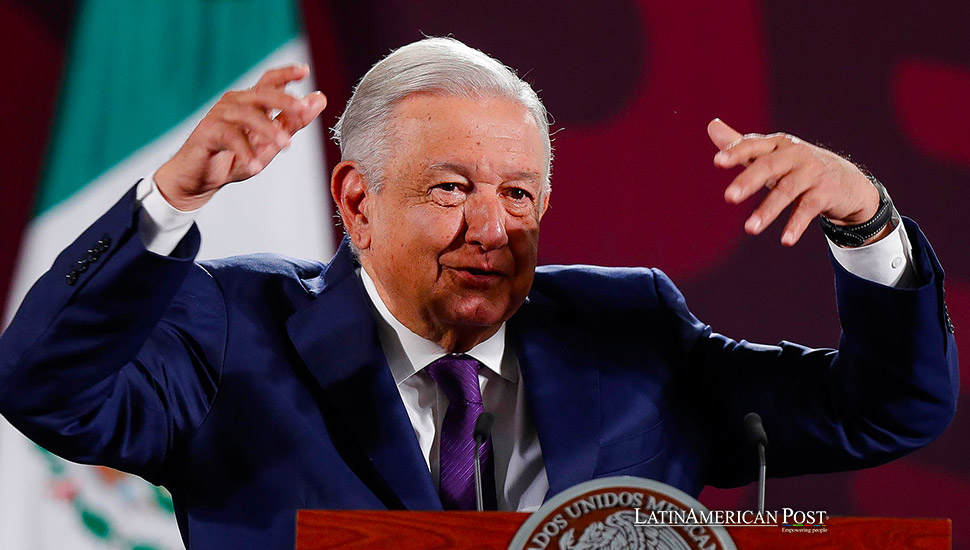Mexico’s “Plan C” is a Dangerous Path Toward Authoritarianism

Mexico’s proposed “Plan C,” which aims to dissolve autonomous government bodies and centralize their functions under federal control, poses a significant threat to democracy. This move risks undermining the checks and balances that protect citizens’ rights and could lead to authoritarian rule.
Mexico’s “Plan C,” spearheaded by President Andrés Manuel López Obrador, is set to dismantle several of the country’s autonomous institutions, transferring their functions to federal government agencies. This plan, approved in general terms by the Commission of Constitutional Points in the Chamber of Deputies, marks a significant step backward for Mexican democracy. The institutions targeted for elimination include the National Institute of Transparency, Access to Information and Protection of Personal Data (INAI), the National Council for the Evaluation of Social Development Policy (Coneval), and several regulatory bodies in the energy, telecommunications, and economic sectors.
The proposal has garnered support from López Obrador’s party, Morena, and its allies, who argue that these autonomous bodies are unnecessary and that federal entities can more efficiently handle their functions. However, this move is not just about efficiency—it is a calculated effort to centralize power and diminish the independence of institutions crucial for maintaining checks and balances in the government.
Autonomous bodies like the INAI are critical in ensuring transparency, protecting citizens’ data, and holding the government accountable. By dismantling these institutions, the Mexican government risks eroding public trust and weakening the mechanisms that prevent abuse of power. Consolidating these functions under federal control could lead to increased political influence over regulatory processes, undermining the impartiality and effectiveness of these bodies.
A Threat to Judicial Independence
One of the most alarming aspects of “Plan C” is the proposed reform of the judiciary, which seeks to make judges, magistrates, and ministers subject to popular vote. This move, which López Obrador claims is necessary to eliminate corruption within the judiciary, is fraught with danger. The judiciary is supposed to be an independent branch of government, insulated from political pressures to ensure it can impartially uphold the rule of law. “Plan C” threatens to undermine this independence by subjecting judges to the whims of electoral politics.
The idea of electing judges may seem democratic on the surface, but in reality, it opens the door to populism and the politicization of the judiciary. Judges could become more concerned with public opinion and re-election prospects than making fair and just rulings based on the law. This could lead to a judiciary that is less focused on protecting the rights of citizens and more inclined to align with the political interests of those in power.
Moreover, the centralization of judicial functions under the control of federal entities further concentrates power in the executive branch. This is particularly concerning in a context where the president and his party already wield significant influence over other branches of government. If the judiciary loses its independence, the checks and balances essential to a functioning democracy will be severely weakened, paving the way for authoritarian rule.
The Erosion of Democratic Norms
The centralization of power under “Plan C” is not limited to the judiciary. The proposal also seeks to dismantle other autonomous bodies, including those responsible for regulating the energy and telecommunications sectors, evaluating social policies, and promoting economic competition. These bodies are designed to operate independently of the government, ensuring that critical sectors of the economy are regulated fairly and that social programs are evaluated objectively.
By transferring these functions to federal ministries, “Plan C” risks politicizing regulatory processes and undermining the objectivity of policy evaluations. For example, the National Commission for the Evaluation of Social Development Policy (Coneval) provides independent assessments of poverty and social programs in Mexico. Its evaluations are crucial for informing public policy and ensuring that social programs are effective and targeted. Suppose Coneval’s functions are absorbed by the National Institute of Statistics and Geography (Inegi), as proposed. In that case, there is a risk that political considerations will influence these evaluations rather than be based on objective data.
Similarly, the functions of the Federal Economic Competition Commission (Cofece) and the Federal Telecommunications Institute (IFT), which are responsible for promoting competition and regulating markets, would be transferred to the Ministry of Economy and another federal entity, respectively. This could increase political interference in regulatory decisions, potentially stifling competition and harming consumers.
Eliminating these autonomous bodies and centralizing their functions under federal control would significantly erode democratic norms in Mexico. These institutions play a vital role in ensuring that the government operates transparently and that public policies are based on objective assessments. Without their independence, there is a real risk that the government will become less accountable to the people and more susceptible to corruption and abuse of power.
The Danger of Authoritarian Rule
“Plan C” is more than just a series of bureaucratic changes—it is a fundamental shift in the balance of power in Mexico, which could have far-reaching consequences for the country’s democracy. By centralizing power in the hands of the executive branch and undermining the independence of critical institutions, López Obrador’s plan sets the stage for authoritarian rule.
The concentration of power is a hallmark of authoritarian regimes. When checks and balances are weakened and independent institutions are dismantled, the government becomes less accountable to the people and more prone to abuses of power. In such a scenario, the rule of law is often replaced by the rule of the executive, with decisions being made not based on legal principles but on the political interests of those in power.
Eliminating autonomous bodies in Mexico is particularly concerning, given the country’s history of authoritarianism and corruption. While significant progress has been made in recent decades to strengthen democratic institutions and promote transparency, “Plan C” threatens to reverse these gains. If the plan is fully implemented, it could lead to a concentration of power that undermines the very foundations of democracy in Mexico.
Moreover, the timing of this plan is also significant. López Obrador is pushing for these reforms just as his party, Morena, is poised to secure a majority in the Senate and the Chamber of Deputies. This majority would allow the president to pass constitutional reforms without significant opposition, further consolidating his control over the government. If these reforms are enacted, it could become increasingly difficult for future administrations to reverse the centralization of power, leading to a long-term erosion of democratic governance in Mexico.
A Call to Defend Democracy
“Plan C” represents a severe threat to the future of democracy in Mexico. By dismantling autonomous institutions, centralizing power in the executive branch, and undermining the independence of the judiciary, López Obrador’s plan sets the stage for authoritarian rule. Eliminating these checks and balances would weaken the mechanisms that protect citizens’ rights and ensure government accountability.
The people of Mexico and the international community must recognize the dangers posed by “Plan C” and take action to defend democratic norms. Preserving independent institutions is crucial for maintaining the rule of law and preventing the concentration of power in the hands of a single individual or party.
Also read: Judicial Reform in Mexico: A Threat to Legal Certainty and the Division of Powers
As Mexico stands at a crossroads, the choice is clear: either defend the democratic principles that have been hard-won over decades or risk sliding into authoritarianism. The time to act is now before the centralization of power becomes entrenched and the ability to reverse course becomes increasingly difficult.





